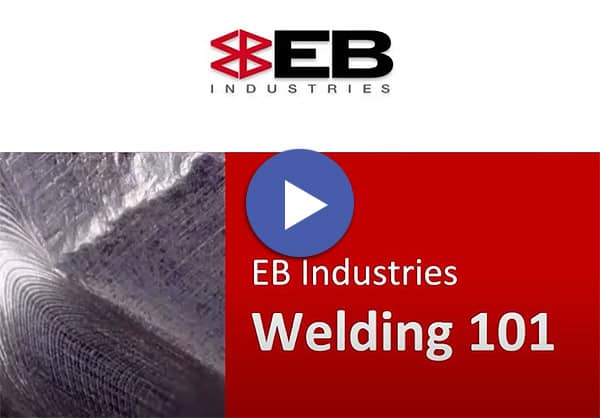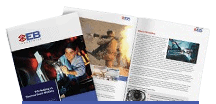Recent developments in global trade policy and geopolitical conflicts have introduced a new wave of uncertainty for manufacturers relying on offshore welding and assembly services. For OEMs and sourcing teams, this unpredictability can lead to cost volatility, extended lead times and quality concerns, which are factors that ultimately threaten program timelines and profitability. In this environment, reshoring your welding projects is more than a risk mitigation strategy; it’s a path to long-term stability, tighter quality control, and faster time to market.
Why Tariffs Are a Growing Concern
U.S. trade policy continues to evolve, with new tariffs being imposed or adjusted across strategic sectors such as semiconductors, defense components and medical devices. These shifts often occur with limited notice, creating planning headaches for manufacturers that rely on offshore welded subassemblies. A minor change in tariff rates can render previously economical overseas sourcing strategies unsustainable. For welded components, especially those requiring high precision, complex materials and tight tolerances, the hidden costs of offshore production can quickly outweigh the initial price benefits.
The Engineering Case for Reshoring Welding Projects
Beyond tariffs, there are several engineering-driven reasons why reshoring makes sense:
- Advanced Material Compatibility and Dissimilar Metal Expertise
Many modern applications, from aerospace and defense systems to semiconductor cooling assemblies, require welding of exotic or dissimilar metals, such as titanium to stainless steel, Kovar to copper, or Inconel to aluminum. These welds demand deep metallurgical understanding, precise control of heat-affected zones, and high-end equipment like electron beam and laser welders. Domestic partners like EB Industries offer proven expertise in handling these complex materials, reducing the risk of brittle welds, microcracking, or contamination.
- Precision for Critical Applications
Industries such as aerospace and medical device manufacturing demand welds that meet extremely tight tolerances, often within thousandths of an inch. Achieving this level of accuracy requires not only high-performance welding equipment but also rigorous process controls, real-time monitoring, and post-weld inspection protocols like helium leak testing and X-ray imaging. Offshore shops can meet these standards but not always with the consistency you need, leading to rework, delays and compliance issues.
- Supply Chain Transparency and Rapid Iteration
When working with a U.S.-based welding supplier, engineering teams benefit from clearer communication, real-time design iteration and easier root cause analysis when problems arise. Time zone alignment, site visits and faster shipping of prototypes enable rapid DFM (Design for Manufacturability) feedback and allow for concurrent engineering practices that keep projects on schedule.
- Compliance and Certification Alignment
Domestic welding partners like EB Industries are well-versed in U.S. regulatory requirements and industry-specific certifications such as AS9100 for aerospace, ISO 13485 for medical devices, and NADCAP accreditation for special processes. This ensures not only technical compliance but also smooth audits and qualification processes with your end customers or government bodies.
- Intellectual Property Security
Keeping critical welding work within U.S. borders adds a layer of protection against IP theft and reverse engineering. For products involving proprietary designs, defense applications or high-value technologies, this security can be as important as physical weld integrity.
 |
WebinarWelding 101 Precision Welding Tips for Electron Beam, Laser Welding and Laser Hermetic Sealing |
Why EB Industries?
For 60+ years, EB Industries has provided high-precision Electron Beam, Laser, and TIG welding services to OEMs in defense, aerospace, medical and semiconductor markets. Our New York-region facility offers:
- Process maturity with complex assemblies like missile housings, implantable devices, and cryogenic components.
- Certified and traceable workflows, including digital weld records and cleanroom capabilities.
- Expertise in handling complex materials from titanium and Inconel to Hastelloy and Kovar.
- In-house inspection using helium leak detection, cross sectional metallurgical evaluation and other forms of inspection, eliminating the need to outsource validation steps.
Whether you’re dealing with a critical flight component or a medical implant that must meet FDA approval, EB Industries has the infrastructure, expertise and engineering responsiveness to support your success.
 |
White PaperTIG Welding Vs. Electron Beam Welding |
Take Control of Your Welding Supply Chain
In a time of global volatility, manufacturers need technical partners they can trust. Reshoring your welding work to EB Industries offers not just cost control, but also engineering collaboration, shorter development cycles and reliable quality. It’s not just a tactical move; it’s a strategic upgrade.
Contact us today to explore how reshoring your weld engineering projects can help you gain control, accelerate innovation, and build a more resilient manufacturing strategy.

